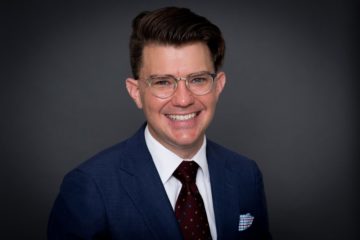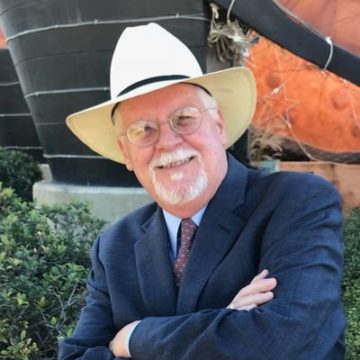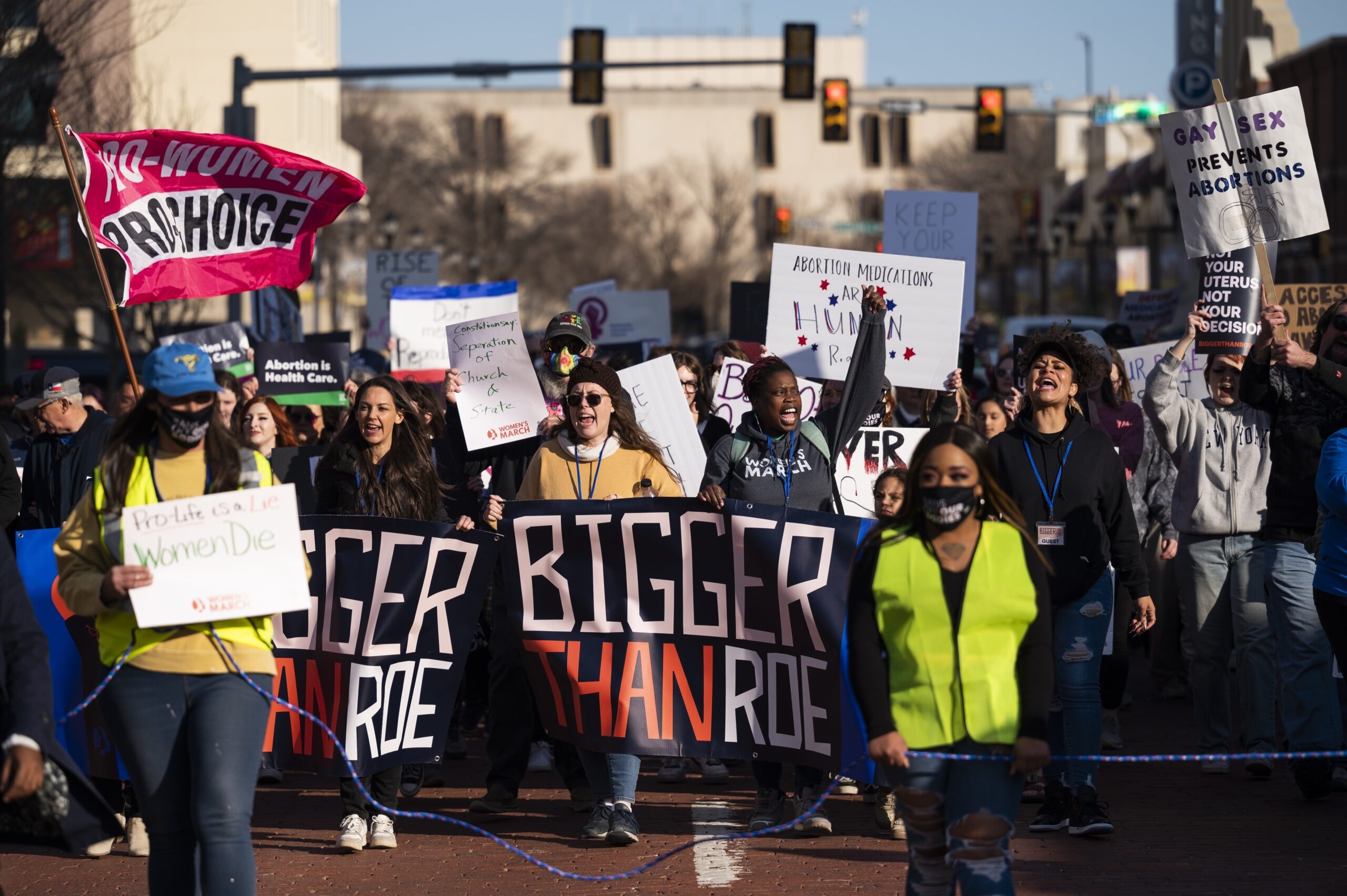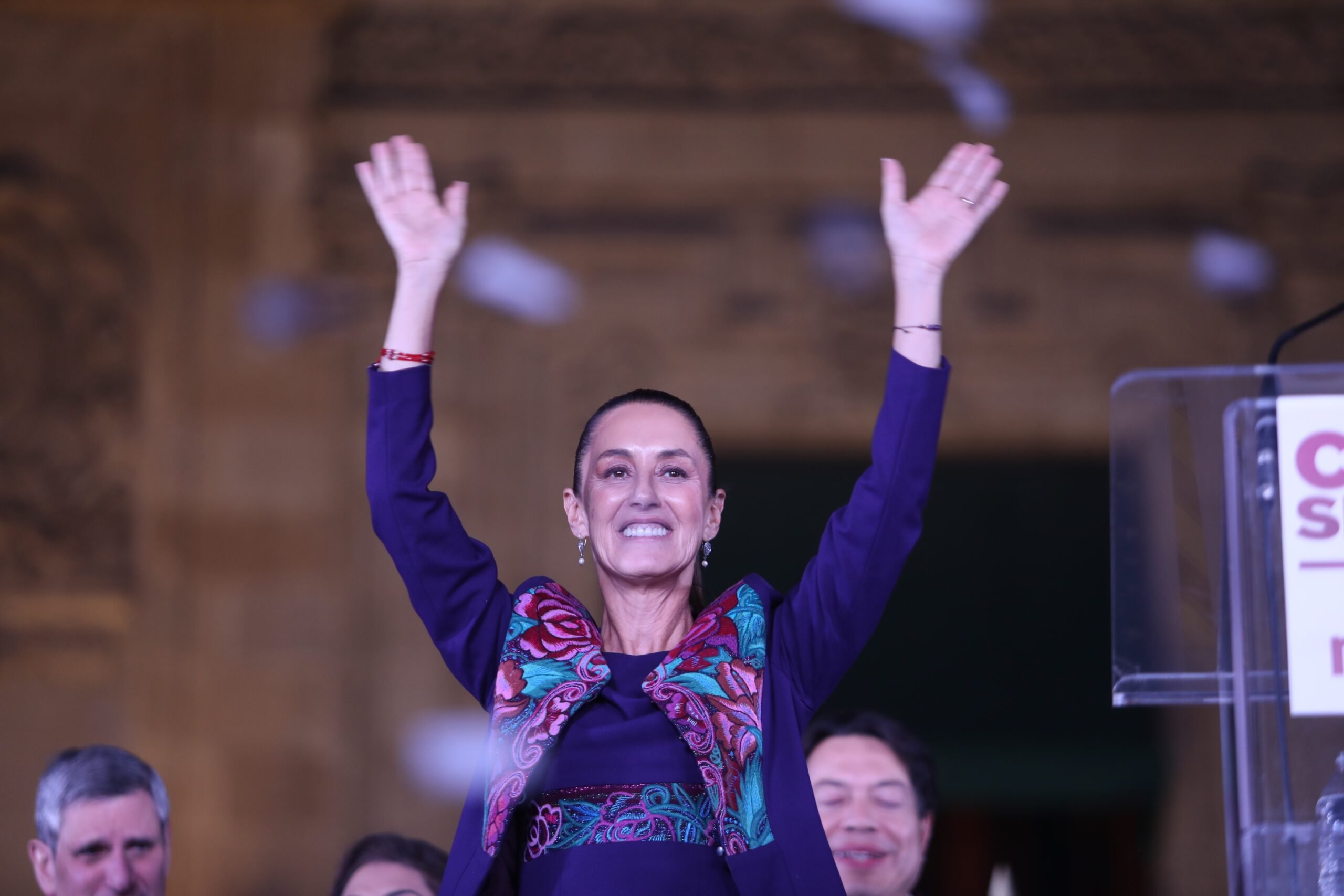
At Least 17 Democratic Socialists Seek Office in Texas
"It's about showing we have a vision of a better future in a time when there’s an overwhelming sense of despondency," said a Harris County judicial candidate and DSA member.

The revolution will be down-ballot. Or such is the implicit promise of Franklin Bynum’s campaign for Harris County misdemeanor court judge. A 35-year-old former public defender, Bynum said he’s seen Houston’s criminal courts routinely railroad the poor into convictions that drive them further into poverty. Now, after nearly 10 years subject to the whims of conservative judges, he’s aiming to take the gavel for himself.
“Who are these courts being operated for? Right now, it’s the police, the bondsmen and the prosecutors, and people are just the raw material to be chewed up,” said Bynum, who’s running as a Democrat for Harris County Criminal Court at Law 8. Bynum’s platform includes expanding the use of personal recognizance bonds, waiving certain fees for the poor and reducing mandatory appearances, which he said are used only to “coerce” guilty pleas from defendants out on bail. “A democratic socialist judge would make the courts work for the people,” he said.

Bynum is one of at least 17 members of the Democratic Socialists of America (DSA) running for office in Texas in 2018, including candidates for the U.S. House and offices ranging from governor to county treasurer. The DSA, which now counts more than 30,000 members nationwide, has grown explosively since Trump’s election and boasts at least 10 chapters in Texas. The group tends to prioritize issues on the left edge of the Democratic Party, like single-payer health care and a $15 minimum wage. There’s no official candidate list, but the Observer reached out to DSA groups around the state to compile this running tally. (Not all the candidates have been endorsed by DSA.)
Some of the candidates, like gubernatorial hopeful Tom Wakely — who styles himself the “Berniecrat with a Panama hat” and lost a 2014 congressional bid by 20 points — face the sort of uphill climb usually found in the Himalayas. But others stand a fighting chance, said Rice University political scientist Mark Jones. Jones pointed to congressional hopefuls Derrick Crowe, in District 21, and Rick Treviño, in the always-competitive District 23, as viable primary challengers.

“With Treviño and Crowe, it’s sort of the mirror image of what we saw with the tea party,” Jones said. “The advantage the establishment candidates have is money, but the tea party’s shown us that sometimes money can lose to these grassroots activist campaigns.”
In District 23, which stretches from El Paso to San Antonio and is currently represented by moderate Republican Will Hurd, Jones said a left wing platform that plays well with primary voters might fall flat in the general election. Hillary Clinton carried the swingy district by 3.5 percent in 2016, and Hurd’s margin of victory was just over 1 percent. But Treviño, a San Antonio high school teacher, is bullish: “[District] 23 is always described as a conservative district where ideas like Medicare for All or a living wage will turn off voters; that is absolutely false,” he wrote in a Facebook message to the Observer. “Across the district, these ideas are resonating, especially Medicare for All.”
Meanwhile, Bynum and some other candidates on the list have no primary challenger or are guaranteed a shot come November — meaning if the prophesied “blue wave” ever materializes, it could carry them to victory along with mainstream Democrats.
Bynum has worked as a criminal defense attorney for around 10 years, including a stint with the Harris County Public Defender’s Office, but in most midterms he’d be a long shot. The off-years are typically bad for Texas Democrats, who suffer from lower turnout compared to presidential years. In 2014, Republicans swept all 15 races for the Harris County misdemeanor courts, winning by around 10 points across the board.
But 2016 was an especially good year for Harris County Dems — the party cleaned up in district judicial races while Clinton won by more than 12 percent — and some observers think 2018 could buck the midterm trend. “If Hillary Clinton or Marco Rubio is president, you expect the midterm year to benefit the Republicans,” said Jones. “But this year, you could have an anti-Trump wave that counteracts that.”
“The advantage the establishment candidates have is money, but the tea party’s shown us that sometimes money can lose to these grassroots activist campaigns.”
Bynum says he isn’t depending solely on anti-Trump sentiment to drive turnout. He’s running a campaign that he calls more active and issues-based than those of his Democratic peers: He criticizes Harris County misdemeanor court judges for resisting a federal order to stop incarcerating those too poor to make bail; he’s campaigned outside the county jail with voter registration forms; he plans to hold clinics to help people with expired or suspended driver’s licenses; and he uses members of the Houston DSA chapter as his volunteer base.
“It’s about showing we have a vision of a better future, in a time when there’s an overwhelming sense of despondency and most Democrats are doing nothing to dissuade us of that,” he said. “A democratic socialist campaign says, ‘let’s talk about what our aspirations are, how we want to live with each other — and let’s build a movement.'”
If any Texas socialists do taste victory this year, it would follow success for the national organization during last November’s elections, when 15 DSA members won office in 11 states around the country. That included Lee Carter, who defeated the GOP’s majority whip in Virginia’s lower house — bringing the total number of DSA members in elected office nationwide to around 35, according to a DSA press release. At the time, then-deputy director David Duhalde predicted the victories would be “the beginning of a new wave of socialist political leaders.”
Bynum said he’s trying to leave behind a blueprint for how to run a well-organized socialist campaign. “We want to build a whole lot more competence on the left to do these things,” he said. “Right now the competence and money is with the reactionaries; we want to build more by including as many people in our campaign as possible.”
The 17 Democratic Socialists seeking office (list consists of DSA members seeking office in Texas in 2018; not all are endorsed by DSA):
- Candace Aylor — Texas House District 47
- Franklin Bynum — Harris County Criminal Court at Law 8
- Lewis Conway Jr. — Austin City Council, District 1Derrick Crowe — Congress TX-21
- Derrick Crowe — Congress TX-21
- Hunter Crow — Arlington TX ISD School Board Trustee pl. 5
- Chantal Eldridge — 331st Criminal District Court – Travis County
- Ernesto Gloria — Tarrant County Justice of the Peace Precinct 2
- Omar Kadir — Williamson County Treasurer
- Ali Khorasani — Congress TX-2
- Steven Kling — Texas Senate District 25
- Mckinley Melancon — Travis County Criminal Court at Law 5
- Danny Norris — Harris County Department of Education Board of Trustees, Position 6
- Justin Snider — Congress TX-6
- Rick Treviño — Congress TX-23
- Jose ‘Chito’ Vela III — Texas House District 46
- Tom Wakely — Texas Governor
- Susanna Woody — Travis County Commissioners’ Court, Pct. 4


